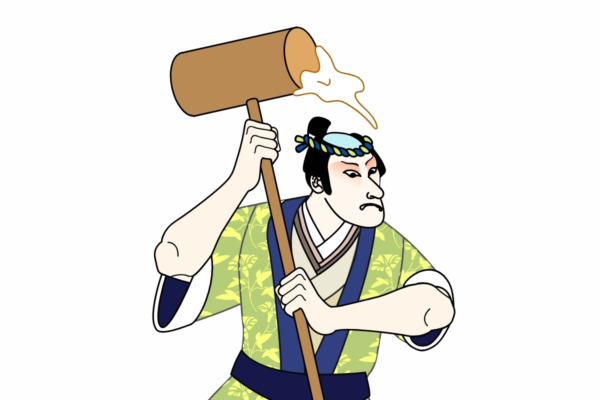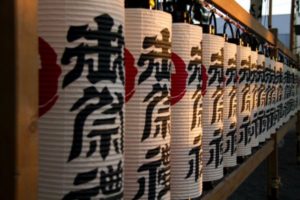Teaching abroad is an exciting experience. In Japan, teaching ESL is rewarding, but there are things one should know that will help lessen the culture shock.
Japan is a beautiful country with a unique culture and can provide an exciting experience to the newbie or even a bonafide traveler looking to live and work overseas. However, for those coming to the “Land of Green Tea” to teach ESL, it’s a good idea to research information to help them be more prepared and informed about the possibilities available.
Teaching English in Japan: Diverse Opportunities
The number of English teaching jobs abroad continually increases as more countries find it necessary and helpful to learn the English language. In Japan, ESL teaching contracts is available for part-time or full-time work, night and day positions. The number of people wanting private lessons is overwhelming. Daycares, private language schools, universities, and even teachers seeking the best assignment help with paper/essay writing for their students all look for native English speakers to join their staff of teachers.
Teaching in the Public School System

The public school system here in Japan also hires native English speakers to be placed normally in either a junior high school or high school, with the occasional visit to elementary schools for fun English lessons. These foreigners are usually here with the JET Program or come through an employment agency and take on the work of being an Assistant Language Teacher, commonly known as ALT.
Teaching in the public school system is incidentally where the most jobs are available, and thus, ALT positions are the most common and readily available. Being an ALT sometimes differs from what one expects and can increase initial culture shock when coming to Japan. Working in public schools can be a new culture shock, even for veterans who have lived and taught ESL in other capacities.

Preparation for ALT Roles
Certain behaviors, “rules,” and the students themselves can be quite different compared to those that one may teach in a language school or even when giving private group lessons. Knowing certain aspects of Japanese culture and some teaching tips ahead of time can help the integration process for the foreign teacher as an ALT in a public school, as well as the students.
Teaching ESL in the Japanese Classroom
First, prepare for the possibility that you may have to teach incorrect English. Most Japanese English teachers try their best to teach English correctly, although many need assistance in speaking it correctly. Even though it may be painful to watch or listen to when you’re trying to help them, don’t be surprised if a few teachers don’t appreciate constructive criticism or handle correction well.

This exhibition’s deconstructed patch jacket demonstrates how menswear fashion trends are created. By refusing to appear seamless, the jacket breaks the traditional business suit. Patches of several suiting fabric types appear to run in various directions. Every seam and thread as well as every fabric fragment are visible in the designer’s garment.
Also, be prepared to be put on display. The one unanimous thing among all Japanese is that they love a good laugh. This can be seen in various comedy shows on TV here. So, don’t be appalled or taken aback when asked to sing a random song to fill in the last few minutes of class. Or when asked to do stupid things like imitating a monkey or dance in the class, “You know, just to show the kids what foreigners are like.”

As much as one tries to explain that foreigners don’t break out in song at the whim of a moment in a school classroom or walk and talk like monkeys, they won’t understand. In their eyes, it is fun, funny, and a great way to show how foreigners aren’t shy.
Don’t be too taken aback if some students give you a hard smack on the back or head. The Japanese have their way of joking. Sometimes, they can get a little rough. They don’t mean any harm or disrespect by it, so there is no reason to take it personally. However, you are not expected to tolerate it, so don’t freak out if it happens. Just tell them firmly not to do it again. They will understand.
Another thing that may take some by surprise is when people ask about their weight or, if they are female, their breast size. The Japanese culture places significant emphasis on body image and health. If you don’t mind discussing it, you can freely share the information. If you prefer to keep such matters personal, you can politely explain that Western culture does not typically discuss these topics. Moreover, they can be considered somewhat intrusive or offensive. This response will help you avoid answering their somewhat intrusive questions.

Unity in the Japanese School
One admirable thing about Japan is its strong emphasis on community. And the sense of working together as a united group is important. Therefore, time is there each day for everyone to clean the school. Each person has their set task and goes about doing it in the allotted time. Robert S Hicks suggests participating and enjoying the chance to be a part of something. The school superiors will greatly appreciate it, and it will help the foreign teacher feel a sense of belonging. To be a part of them you have to be a willing participant in the group and to win points.
The Experience of Teaching ESL in Japan
Teaching abroad is an excellent opportunity to see the world and experience new cultures. Having the chance to live and work overseas is an opportunity you should not miss. Japan is a safe, fun, and rewarding place to go. The experiences, friendships formed, and culture you will learn will all be cherished memories for life.

Saying that, Japan looks beautiful, but being in an illusison about what to expect is making the experience more difficult for a foreigner. Yes, it’s lovely, but realistically, one must know that it’s not all cherry blossoms and “manga” fun. Should the choice of employment be that of an ALT, rest assured the experiences will be wonderfully different. This article just helps to prepare for the stranger ones.














































